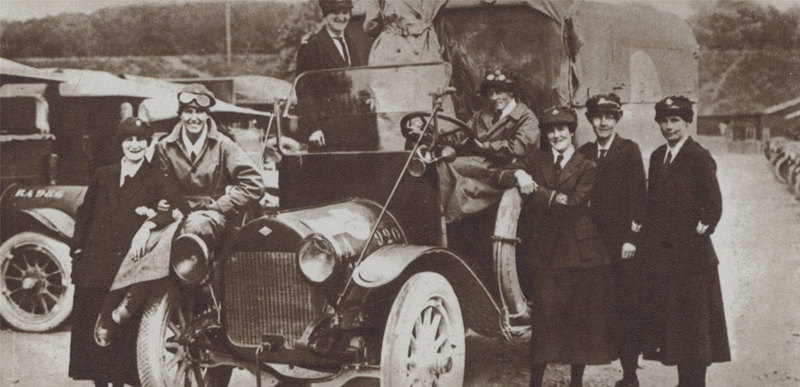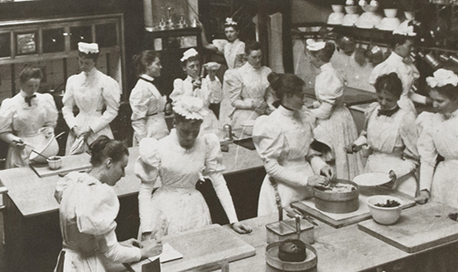Our Work in the Women's Reserve Ambulance
Former Edinburgh School of Cookery student, Kathleen C. Brenda Powell’s training at Atholl Crescent in 1910-11 prepared her for an extraordinary role in wartime service. She began as a cook in a V.A.D. (Voluntary Aid Detachment) hospital in 1914, but soon craved the adventure of outdoor work.

In December 1915, she joined the Women's Reserve Ambulance (W.R.A.), a corps of 300-400 dedicated women who took on diverse and challenging responsibilities following the outbreak of the First World War.
The W.R.A. tackled a wide range of tasks. According to the July 1918 edition of the Edinburgh School of Cookery magazine, Powell found herself driving cars, repairing vehicles, and braving the harshest conditions. Whether navigating air raid sirens or delivering supplies, we are told the women tackled their roles with resilience and humour.
One of Powell’s many assignments included transporting wounded soldiers to the Artificial Limb Hospital in Roehampton. She was deeply inspired by the hospital’s remarkable work, such as rehabilitating a triple amputee who returned months later, walking and even playing croquet.
The work was unrelenting. During the Silvertown Explosion, Powell and her fellow drivers worked for days to aid displaced families, providing food and bedding to children left orphaned by the tragedy. Nights often brought air raid duties, requiring quick mobilisation and fearless action amidst bombs and chaos.
In 1917, Powell represented the corps at a farm near Folkestone, operating a motor tractor plough to help with critical wartime food production. Undeterred by long hours or even a bomb falling in the same field, she pressed on, ploughing under the moonlight and navigating the farm’s vast expanse on a motorbike.
In her rare moments of respite, Powell played with the W.R.A. Orchestra, providing concerts for hospitals and canteens. Despite the exhaustion, she remained a beacon of energy and encouragement, urging others to join the cause.
Through every challenge, from ferrying wounded soldiers to orchestrating emergency responses, Powell and her comrades embodied courage and adaptability. Her story, as told in the QMU archives, stands as a testament to the extraordinary efforts of women on the home front.



